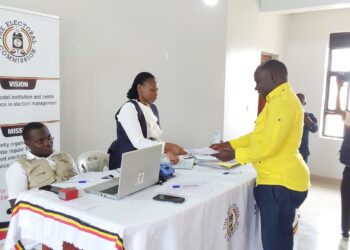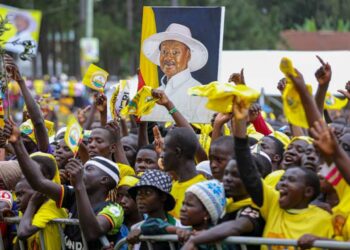Tension has gripped areas of West Nile arising from the volatile security situation in the republic of Sputh Sudan, spreading fear and panic among residents and disrupting business.
Clashes between the South Sudanese People’s Liberation Movement ( SPLM) and South Sudan Liberation Movement in Opposition ( SPLM IO) led to the eventual collapse of the 2018 revitalized peace deal, with Uganda carrying the burden from the after effects.
The recent escalation of violence between the Sudan People’s Liberation Army (SPLA) and the SPLM-In Opposition (SPLM-IO) has not only deepened the political crisis in South Sudan but also spilled across borders, destabilizing Uganda’s West Nile region. What began as renewed fighting in Morobo County—where SPLA-IO forces claimed to have recaptured Kendila, Panyume, Mongoya, and Lujulo payams—has now triggered a series of cross-border incidents that have left Ugandan communities reeling. According to SPLA-IO spokesperson Col. Lam Paul Gabriel, their forces destroyed three military vehicles and captured over 80 AK-47 rifles and 12 PKMs from government troops, while suffering six fatalities and eight injuries themselves.
In Uganda’s Yumbe District, the situation turned deadly when South Sudanese soldiers from the SSPDF reportedly crossed into Fitina Mbaya village, establishing a military detachment two kilometers inside Ugandan territory. The Uganda People’s Defence Forces (UPDF) attempted a peaceful resolution, but were met with gunfire, resulting in the death of one Ugandan soldier and three South Sudanese troops. Captain David Kamya of the UPDF stated, “We responded to their fire and put three South Sudanese soldiers out of action; we captured their equipment, forcing them to withdraw back to their territory”. The clash disrupted a scheduled cross-border peace meeting and sparked panic among residents, with reports of five houses burned and families displaced.
Meanwhile, in Koboko District, armed assailants—suspected to be remnants of South Sudanese factions—stormed Busia Trading Centre, fired gunshots to disperse civilians, looted property, and abducted a local resident named Hamis Luji. The attackers made off with UGX 18 million and demanded a ransom of UGX 10 million.
SPLA-IO denied involvement, asserting that the perpetrators were SSPDF elements who fled combat and crossed into Uganda. “The SPLA-IO doesn’t operate outside South Sudan. Check your sources well and know who your real threats are,” said Col. Lam Paul Gabriel.
The violence has had a chilling effect on border communities. In Fitina Mbaya alone, local leaders reported that South Sudanese forces raided gardens and stole food, forcing dozens of families to flee. Toah Mafu, LC3 chairperson for Kochi sub-county, lamented, “The situation has caused a lot of fear amongst the people in Kochi sub-county as it’s closer to South Sudan.”
Security Working Around the Clock
The UPDF has since intensified patrols and assured residents of their safety, but the psychological toll and economic disruption remain significant.
In a phone discussion with Koboko Resident District Commissioner ( RDC), Emmy Mitala, he admitted the security crisis in South Sudan has had major ramifications for the border districts in West Nile but assured the country that Uganda is still very capable of protecting its borders.
” Uganda shares borders with South Sudan and in similar situations, the spill over effects of war are bound to affect the neiborhood, so this is not unique,” RDC Mitala said.
What I can assure the country is that this country has proved numerous times that it can manage its situation like no other on this continent. The security has been on high alert and in no time, this will also pass.” He notes with confidence.
On measures taked to mitigate the effects of the crisis upon the security of Koboko, Mitala told Watchdog news that working with the Fourth Division of the UPDF under Major General Felix Busizori, the District Security Committee ruled to clear the district of suspicious South Sudanese who are suspected to be a security risk to the district. Here, an operation done in only three villages of Kijaliya, Busia and Mungujai, over 1600 illegal residents were rounded up and handed over to the office of the prime minister for further management. Those who were found registered as refugees were asked to return to the refugee camps while others were given two choices; to go to the camp or return to South Sudan.
With over 4 soldiers killed in the recent Yumbe clash and thousands displaced in South Sudan, the fragile peace between Uganda and its northern neighbor is under severe strain. As Uganda prepares for its 2026 elections, the government faces the dual challenge of securing its borders and maintaining regional stability. The events unfolding in West Nile are a stark reminder that unresolved conflicts in neighboring states can quickly become domestic crises.
Do you have a story in your community or an opinion to share with us: Email us at editorial@watchdoguganda.com














